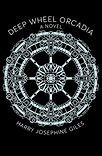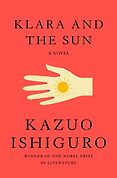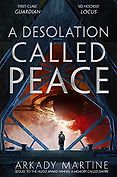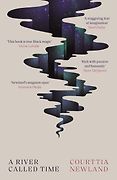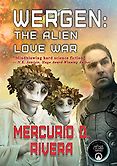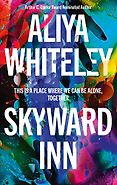Thank you for joining us to discuss the shortlist for the Arthur C. Clarke Award for the best science fiction books of 2022. We find the books highlighted by the Clarke Award are always very popular with our readers. To start us off, for anyone who has missed our previous years’ coverage, could you tell me a bit about the prize and how the judging process works?
The prize was set up in the mid-1980s with a donation from Arthur C. Clarke, who wanted to put money back into British sci fi. I’ve heard stories that he wanted to start a science fiction magazine—there was one named for his rival Isaac Asimov—but instead an award was suggested, with an annual prize of £1000. This was later raised to £2001 and has gone up a pound each year. When it was obvious that Arthur’s UK holding company, Rocket Publications, could no longer fund the award, a group of us set up the Serendip Foundation to save the award.
Initially, two judges each were supplied every year by the British Science Fiction Association, the Science Fiction Foundation, and the International Science Policy Foundation—which no longer exists. Later we hooked up with Sci-Fi London for a fifth—an odd number makes a deadlock less likely. The first award, in 1987, went to Margaret Atwood’s The Handmaid’s Tale, and caused a bit of a kerfuffle because she said she didn’t write science fiction. The award has often gone to a left field title—most notoriously when Marge Piercy’s Body of Glass won out over Kim Stanley Robinson’s Red Mars. On the other hand, some commentators are unhappy that more experimental books have been overlooked in favour of more ‘core’ science fiction. It comes down to the tastes of those five judges in the room.
“The history of genre science fiction is dominated by straight white men”
The judges—this year Phoenix Alexander, Kris Black, Nicole Devarenne, Stark Holborn and Nick Hubble—get sent all the books, which they are expected to read and assess, and we have various meetings to whittle these down to a shortlist of six. Then we have a last meeting to decide the winner. Most years the judges plead for seven books, but we keep it fixed at a half dozen.
How many books were considered for the 2022 science fiction prize?
More or less one hundred books, maybe a couple more, which is a bit down on previous years but higher than a decade ago. I’m not sure whether this was a side effect of the pandemic or whether publishers were more careful about sending books which are firmly science fiction. There were a couple of books I’m sorry we didn’t see.
Let’s talk about Deep Wheel Orcadia by the Scottish writer Harry Josephine Giles. It’s a novel-in-verse, which takes a very interesting literary approach. Can you tell us more?
Novels-in-two-verses, you might argue. One in Orcadian, one in English. Orcadian is a dialect of Scots—as opposed to Gaelic—and there’s a history of Scots feeding into science fiction and horror, especially Gothic horror. In 1919, someone came up with the idea of the Caledonian antisyzygy—the Scots think in one language, but feel in another, say. There’s a sort of divided consciousness at the centre of Scottish books, poetry and art—and we can trace this division in authors such as Robert Louis Stevenson, Iain M. Banks and many others.
I think I can relate to that.
The action of Deep Wheel Orcadia is mostly set on or close to an isolated space station, at a crisis point in the solar system, and focuses on the working and private lives of the characters on board. You could decide to read the Orcadian version and then the English, or vice versa, or just one—but you’d miss so much if you only read half. I think you can pick up the Orcadian, as you might the Riddleyspeak in Russell Hoban’s Riddley Walker.
Mind you, the English isn’t straightforward. Look at this on the first page:
She watched the Deep Wheel approach, grey-green, its Central Station still turntwistwhirlspinning againstaboutbefore the yellow gas giant.
That first coinage is a translation, well, four translations, of ‘tirlan,’ which I assume could be translated as any of them. Translators usually just pick one equivalent, which can shift the meaning of the original. As the text is their own translation, Giles could adjudicate between them, but allows all four. And sometimes what you might see as ‘Received Pronunciation’ dialogue breaks into the Orcadian.
Use of the Orcadian dialect gestures towards Giles’s Orkney Islands heritage. But here it’s applied in a futuristic setting. Does that jar?
There’s a long tradition of science fiction looking to the past or to other cultures as inspiration. I was at a maritime museum in Bergen, Norway, a couple of years ago and a map there located Orkney as almost being central to the Viking interests—the North Sea as a sort of internal sea as the Mediterranean was for the Romans. You can read the Norse sagas and some of the Old English poetry of the pre-eleventh century and there’s a science fictional, certainly a fantastical, feel. There’s an account of discovering America, say, which might be real history or might be an imagined history.
Choosing it is pushing the boundaries of the award, as we did with Simon Stålenhag’s illustrated The Electric State a couple of years ago. We don’t see verse novels often in science fiction. Giles’s poetry makes us see the world in a new way—doubly so in an outer space setting. I’ll definitely be pushing the judges over whether it is indeed a novel. But I think it’s the sort of book the prize exists to draw attention to for die-hard scifi readers, and to make non-scifi readers question their assumptions about the genre. Thinking about it, there’s a couple of science fiction novels in Welsh, and I’d love for translations of those to be submitted.
I’ll look forward to hearing about them. Let’s talk about Klara and the Sun by Kazuo Ishiguro next. Why have the judges highlighted it as one of the best science fiction books of 2022?
I can’t be too specific about their opinions, but we spent a long time arguing over its inclusion—Never Let Me Go was shortlisted a few years ago and The Buried Giant was submitted, but that probably too fantasy. Some of the judges had very emotional reactions to the novel, especially about the central narrating character, Klara, who is an ‘Artificial Friend’ and somewhat… pliant. But in fact, most of the female characters in the novel are passive or altruistic, accepting of their fate. The novel was on the Booker long-list, and he’s won a Nobel Prize—pretty rare for scifi writers—but that won’t necessarily count in his favour or indeed against him.
Ishiguro’s novels are often speculative but find a mainstream audience; do you think the diehard scifi fan will enjoy this book too?
I don’t see why not—arguably it’s a traditional science fiction novel, told from a first-person point of view. Ishiguro was on the original Granta list of the best young British novelists back in 1983, with Martin Amis, Salman Rushdie, Ian McEwan and Clarke-winner Christopher Priest. Several of them have written science fiction or something close to it.
Ishiguro’s literary trick is that the world Klara knows is limited by what she can see or what she is told about. As readers, we might have a better idea of some of the things she doesn’t realise—what she has got herself into, say—but the narrative might not go where we expect or perhaps hope. We’re assembling Klara’s world alongside Ishiguro. And the idea of the Sun as potentially a God is fascinating; in science fiction it could, of course, be a superior being.
Another previous Clarke Award shortlistee Arkady Martine returns with her new space opera, A Desolation Called Peace. Tell us about it, and why this work of science fiction made your 2022 shortlist.
I guess this is space opera, about interplanetary conflict and first contact, not necessarily in that order. The Teixcalaanli Empire encounters a superior alien threat and Three Seagrass, the protagonist from the previous book, is brought in to try and communicate with them. She insists on getting the help of her friend, Ambassador Mahit Dzmare, hoping to stop a war. But there are factions within the empire who would like war or would find it quite useful for their careers, so there are a lot of conflicting and murky motives on display.
Does it work as a standalone novel, or should readers start with the first book in her Teixcalaan sequence, A Memory Called Empire, before moving onto this title?
I don’t think you need to read Empire to enjoy Peace; in fact, not all of the judges had, since it was different group of readers. I’d read it, but that’s a few years ago now and I’ll try and read them back-to-back before the final meeting. You need to know that Mahit’s predecessor as ambassador died in mysterious circumstances and that she has an incomplete back up of him in her mind. The Teixcalaanli emperor, Six Direction, was also under attack and now Nineteen Adze has taken over the position. But there’s an eleven-year-old partial clone of Six who is taking an interest in imperial events and make possibly end up making it worse.
It’s a rich brew of characters and conspiracy, but there is a useful glossary at the back, which I confess I did use as I’m rubbish with names. It’ll be up to the judges whether they feel it stands alone or is the second half of a single novel. We’ll see!
Next up on our 2022 science fiction shortlist we have Courttia Newland’s highly acclaimed A River Called Time. It’s set in an alternative London, called Dinium. Tell us more.
It’s so timely—there’s the In the Black Fantastic exhibition at the Hayward Gallery at the moment, which has both responses to the legacy of colonialism and attempts at reconstructing the lost heritage of what we call African. Colson Whitehead’s The Underground Railroad recast an era of American slavery through science fiction and Namwali Serpell’s The Old Drift put a science fictional spin on a long history of Zambia; both won the Clarke Award in previous years. Recently there was Marlon James’s fantasy trilogy, which draws on African mythology and narratives. Newland uses beliefs from various African cultures, and you have to accept them as true within the context of the novel. It’s way of looking at the world, treating it as science.
Get the weekly Five Books newsletter
In this novel, Africa has not been subjected to the horrors and traumas of European colonisation and it seems as if technology has developed faster than in our world. I think you could argue about this—the Industrial Revolution seems pretty solidly developed through imperial exploitation—but it’s clearly a divergence from our history, way back. There’s a timeline at the start of the book where Columbus reaches American in 1392 or thereabouts, so technologically, things have happened more quickly. There’s been some disaster in what we call London, a couple of centuries before the novel, around the time of the Regency. An Ark has been built—essentially a fortress—to protect the chosen citizens from poverty and the fall out of the disaster. The central character, Markriss Denny, aspires to join this elite and has discovered he can astral project himself. But he pretty quickly discovers that the Ark isn’t a utopia, and that he is part of a struggle which could destroy everything.
I think this is what you might call a ‘multiverse’ novel. Could you talk a little bit about what that means, and how Newland deals with diverging timelines?
I think the term goes back to William James in the nineteenth century, but a key name is the quantum theorist Erwin Schrödinger—he of the dead-and-alive-cat thought experiment—who suggested that different events could be described or predicted by the same equations at the same time. He wasn’t happy about this. The writer Michael Moorcock then used the term—or maybe he came up with it independently, I’m not sure—to describe his individual and overlapping novels featuring versions of the Eternal Champion. He rewrites the different books with the same character, or vice versa.
In a sense, the idea relates to the science fictional alternate world—such as in Philip K. Dick’s The Man in the High Castle where the Nazis won the Second World War. In that novel, characters slide between versions of reality, and the same is true of A River Called Time. It’s not necessarily the same imagined world in each of the sections. In fact, in one case, clearly not. That could be a spoiler, so I won’t say any more. Newland plays it straight, but we as readers are trying to work out what is real and what isn’t. Funnily enough, I’ve wondered if Whitehead is doing something equivalent in The Underground Railroad; it’s as if each station opens in a different version of America.
It’s an impressive science fiction debut, but Newland has been publishing for years. I need to get hold of his newish collection, Cosmogramma, which seems to include science fiction, and it might be that some of the stories predate the novel. I only knew his name from a couple of credits on Steve McQueen’s Small Axe anthology series about Black experience in Britain. He’s clearly done masses of research and I hope he writes another scifi novel.
Mercurio D Rivera’s Wergen: The Alien Love War is next on your 2022 science fiction shortlist. Can you explain the concept, and what you liked about the book?
This is formed from short stories. There’s a term for this which science fiction criticism invented and has argued over ever since, the ‘fix-up.’ Ray Bradbury’s The Martian Chronicles is a good example—that’s a series of short stories set on Mars, mostly, which reads as if it’s a novel. But in fact, some editions of it have different stories. They tend to be episodic and can cover a long period of time.
The Wergen are an alien race who are sexually attracted to human beings, whether they like it or not, and want to help them. Humans are more than happy to exploit this, and some of the Wergen resist or fight back. They don’t want to be subject to desires they can’t control. It’s an extraordinary achievement—Wergen biology is fascinating, and it really plays with our notions of gendered desire. Of course, same sex and opposite sex is rather different when applied to cross-species relationships. It’s deeply moving at times. There are lots of tragic moments.
When N.K. Jemisin endorsed this book she described it as “mindblowing hard science fiction.” What does that term mean, ‘hard’ science fiction?
That term is also argued about! It tends to refer to science fiction that is very dependent on scientific extrapolation—physics, chemistry, astronomy, the hard sciences—in fact, the sort of fiction that Clarke tended to write. In later novels, he had the habit of stopping the narrative to spend a chapter discussing a random moon of Jupiter or wherever, presumably jumping off from the latest academic scientific article. It tends to be used as the opposite of ‘soft’ science fiction, which extrapolates from sociology, psychology and other soft sciences. There’s a chapter in Alien Love War where a group of characters are descending in freefall from a great height and hoping to survive. In hard science fiction, the author will have worked out the mass of the planet below and the gravitational pull, when maximum velocity would be reached, and so forth. In soft science fiction you’d get an allusion to Icarus or Lucifer, as you try not to worry that that character won’t walk again.
I’m not sure I would have thought of this novel as hard science fiction myself, as there’s so much psychology. Maybe Rivera did crunch the numbers.
That brings us to Skyward Inn by Aliya Whiteley, billed as a sci-fi retelling of Daphne du Maurier‘s Jamaica Inn. Why is Skyward Inn one of the best science fiction books of 2022?
Again, I think the judges were responding to the platonic romance at the inn between a human, Jem, and a Qitan, Isley. It seems we invaded the Qitans’ planet when we discovered it, looking to exploit them, except they more or less willingly surrendered. The inn is in ‘the Protectorate,’ an anti-technological enclave in Devon, where Isley is the only permitted alien. It feels a little like the fundamentalist settlement in Wyndham’s The Chrysalids: a puritanical, pastoral utopia-dystopia, which wants to stop the clock. This enclave is threatened by the arrival of another Qitan and a plague. There’s no escape from pandemics!
It seems so. Can you read Skyward Inn as an allegory of colonialism? Should you?
Can I? There’s certainly the thread of conquest as based on capitalism—which was typical of European imperialism, as I said earlier. A few of the reviews I’ve looked at cite H.G. Wells’s The War of the Worlds, with its throwaway footnote about the genocide in Tasmania. Partly Wells imagines us in the role of the colonised—then all the Martians die from flu, or something like it.
In Skyward Inn, I think it gets more complicated, since there’s a cultural interaction between the species, like there was in Alien Love War. And A Desolation Called Peace, come to that. How changed were we by the people we colonised, kidnapped or enslaved? We’ve appropriated their music and their food, and yet acknowledging historical injustices is often dismissed as just another woke salvo in the culture wars. Meanwhile, the National Trust and English Heritage get attacked for acknowledging the source of the swag that financed so many of the stately piles they look after… The impact of the encounter with the alien is profound in several of these novels – it’s up to the reader to decide if these changes are to be welcomed or feared.
Finally, do you think science fiction is in good health in 2022?
I think so. To return to H.G. Wells, he gave us a toy box of half a dozen or so novels: time travel, alien invasion, trips to the Moon, and so on. There’s a constant fear that these devices will go stale or become useless clichés—although there’s always room for another murder or another romance in other genres. The history of genre science fiction is dominated by straight white men and, whilst there’s nothing wrong in that in itself, it’s refreshing to get an unfamiliar take on the world from other identities. We obviously owe a debt to Mary Shelley, but far too many other women have been downplayed or written out of scifi history. With a few exceptions.
Get the weekly Five Books newsletter
There’s only a handful of Black, British science fiction writers. If you look at the catalogue for the exhibition I mentioned before, In the Black Fantastic, African Diasporic science fiction has been healthy for decades in music, cover art, the visual arts and so on. It’s just not necessarily been published in New Worlds or InterZone or by Gollancz or HarperCollinsVoyager, and we’ve not been paying enough attention.
I’m sure Stewart Hotston will have crunched the numbers for us, about how many writers of colour were submitted and how many women, and how that compares to previous years. But the diversity of our shortlist is testimony to the strength of the books, rather than the judges filling quotas. And I genuinely don’t know which book will be chosen as the winner. I think we will have a tough and even more passionate meeting to decide.
Part of our best books of 2022 series.
Interview by Cal Flyn, Deputy Editor
September 3, 2022
Five Books aims to keep its book recommendations and interviews up to date. If you are the interviewee and would like to update your choice of books (or even just what you say about them) please email us at [email protected]
Five Books interviews are expensive to produce. If you've enjoyed this interview, please support us by donating a small amount.

